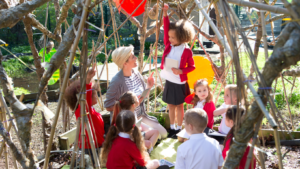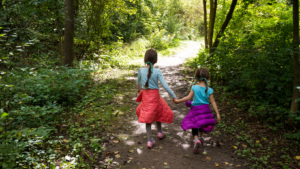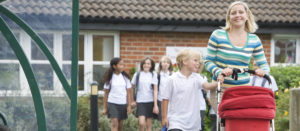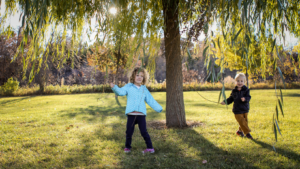Research into the importance of nature play, learning outdoors, risk-taking and children's mental and physical health and wellbeing forms the basis for the work we do.
Here you'll find the latest scientific research that shows the benefits of nature play for our children!
Use the Search function, or click on a keyword in Resource Categories to find research about a particular subject.
Research demonstrates a significant association between mobile media device use and parent-reported expressive speech delay in 18-month-old children.
Read MoreParticipants in Outdoor Education Programmes (OEPs) presumably benefit from these programmes in terms of their social and personal development, academic achievement and physical activity (PA). The aim of this systematic review was to identify studies about regular compulsory school- and curriculum-based OEPs, to categorise and evaluate reported outcomes, to assess the methodological quality, and to discuss possible benefits for students.
Read MoreThis article presents the findings of a research study with young adults who explored the connections between their early childhood experiences in nature and their attitudes and actions towards the environment in adulthood.
Read MoreHigher screen time is associated with type 2 diabetes (T2D) risk in adults, but the association with T2D risk markers in children is unclear. Researchers examined associations between self-reported screen time and T2D risk markers in children.
Read MoreChildren who are able to play and travel without an adult and those who walk or cycle to school are more likely to meet Australian physical activity guidelines, according to findings from research that investigated the role that parental fear plays in shaping children’s independence and physical activity, the first of its kind in Australia.
Read MoreA majority of Australian children are spending more than the recommended two-hour daily limit for screen time (watching television, on computers and playing electronic games).
Read MoreIt is often hypothesised that neighbourhood green space may help prevent well-known declines in physical activity and increases in sedentary behaviour that occur across childhood. As most studies in this regard are cross-sectional, the purpose of our study was to use longitudinal data to examine whether green space promotes active lifestyles as children grow older.
Read MoreStudies have shown that natural environments can enhance health and here we build upon that work by examining the associations between comprehensive greenspace metrics and health.
Read More- « Previous
- 1
- …
- 5
- 6
- 7








